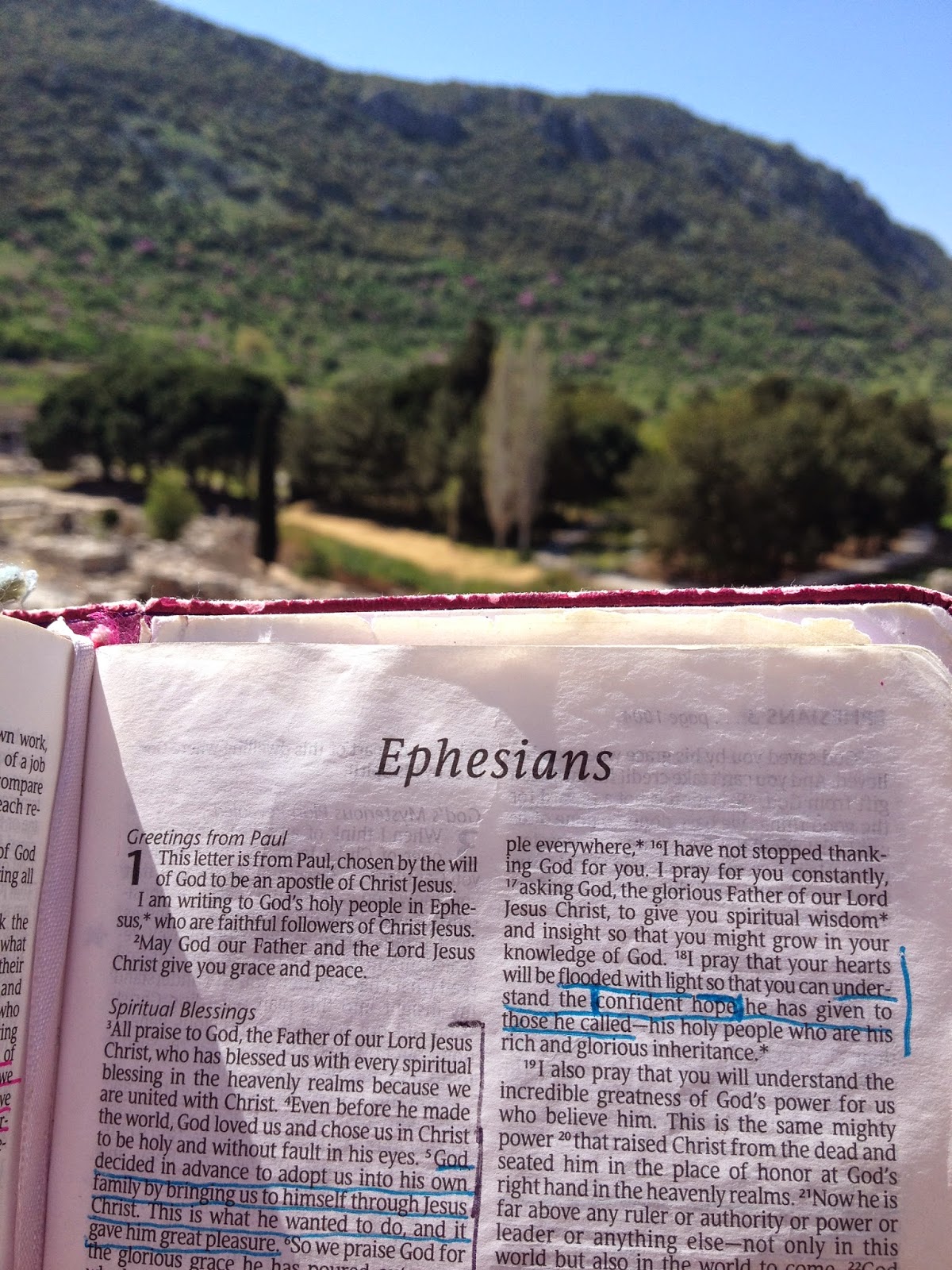Now I think it's brilliant.
John Piper did a biographical series by sharing one message about one person at a pastor's conference every year. You can find the collection (for free!) here.
This past Wednesday morning, my teammates chose to listen to a biography on Athanasius. I would once again like to say that I suggested it, but I didn't. I didn't even vote for it.
But it's a winner. I learned a lot. I've been learning a lot from these Wednesday mornings with John Piper's booming voice, my teammates, and my journal and pen. I've been convicted. I've been challenged. It's been so, so good. Seriously, I recommend listening to these biographies on a road trip or something. That's how it was first suggested to me.
What does this biography business have to do with "every third book"? Good question [if you're thinking it; if not, that's okay too.]
John Piper spoke about the importance of continuing to read books by Athanasius and other old, old people like him. He quoted C. S. Lewis
"Every third book you read should be outside your own century."Piper didn't just quote Lewis though. He explained why he thinks Lewis's point is important: It helps you get out of you own time's blindness. Some people are quick to say that you get sucked into the blindness of the author's time period; we "understand" truth that they didn't. Maybe. But if that's true, they "understand" truth that we don't as well.
After Piper made that point and developed it more fully than my last paragraph, I opened up my Kindle library. What have I been reading? Do I pass the test?
Here are the last 12 books I have read (beginning with most recent -- as in I'm still reading 1, 2, and 3):
- Made to Crave by Lysa TerKeurst (2010)
- The Silver Chair by C. S. Lewis (1953)
- Bonhoeffer: Pastor, Martyr, Prophet, Spy by Eric Metaxas (2011)
- Missing Stars, Fallen Sparrows by Nick Palermo (2013) [More about this winner to come later!]
- Dracula by Bram Stoker (1897)
- Partnering with the King by Dr. John L. Hiigel (2013)
- Glorious Ruin: How Suffering Sets You Free by Tullian Tchividjian (2012)
- Heroes and Monsters by Josh James Riebock (2012)
- The Comedy of Errors by William Shakespeare (1594; it's a play, but I'm still counting it)
- The Historian by Elizabeth Kostova (2005)
- Cold Tangerines by Shauna Niequist (2009)
- The Little Prince by Antoine de Saint-Exupéry (1943)
All of those titles were written in the last century with the exception of Dracula and The Comedy of Errors. I like to think those two titles make me cultured.
According to C. S. Lewis, out of those twelve books, four should be from before our time. In case you missed it, only two are. They are great works of fiction, but neither one made me really grow in understanding life or God. I just understood how the Twilight phenomenon destroyed the epic vampire legend from one and had a good laugh from the other.
I would love to say that my next book in the line-up to read is a part of Lewis's idea, but it's not. None of them are. Or rather, none of them were.
I've decided that the more recent publications can wait. After I read two, I'll read a book from before the 1900s. I'll even read books directly about God instead of solely classic literature.
That biography, that quote, made me realize that the only old book I ever grab is my Bible. It's a good grab. It's my favorite book. [I also need to rebind it when I return home. So if you know where I can do that in Sioux Falls, that would be great, friends. Let me know. Thanks.]
Even though my favorite book is old, my other readings are closer to now -- surprisingly most within the last few years. It's probably because I want to be ahead of the game. I want to know the latest. I want to think like the great thinkers of today.
Now I'm learning that when I grab at that, I miss out on those who were ahead of the game back in the day, those who are somehow still ahead of the game understanding things that we don't even bother to think about.
Two days ago, I decided that every third book I read will be from outside our century. For every two books I knock off of my Amazon wish list, I'll read another that I never considered reading until now.
So if you have any recommendations, I would love to hear them. Actually, I sort of need them.
What type of book will you read as your every third book? Care to join me on this journey into the great minds of the past?


No comments:
Post a Comment